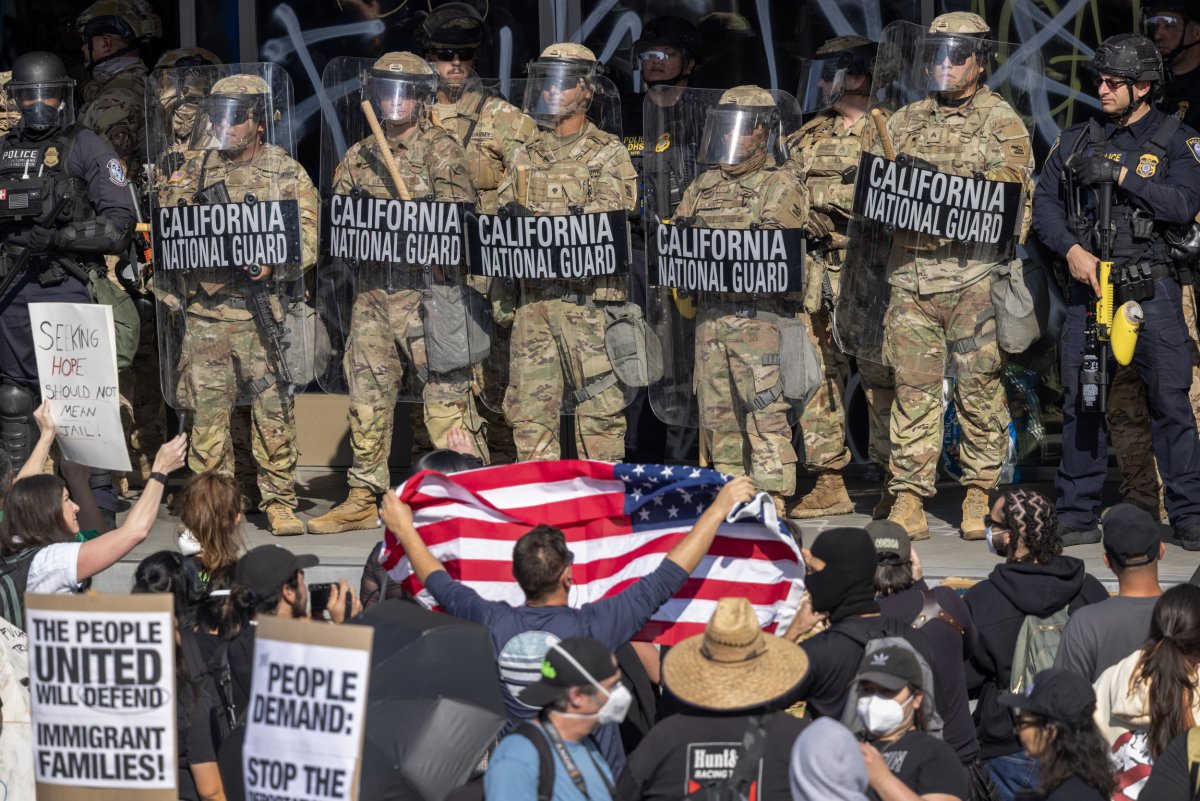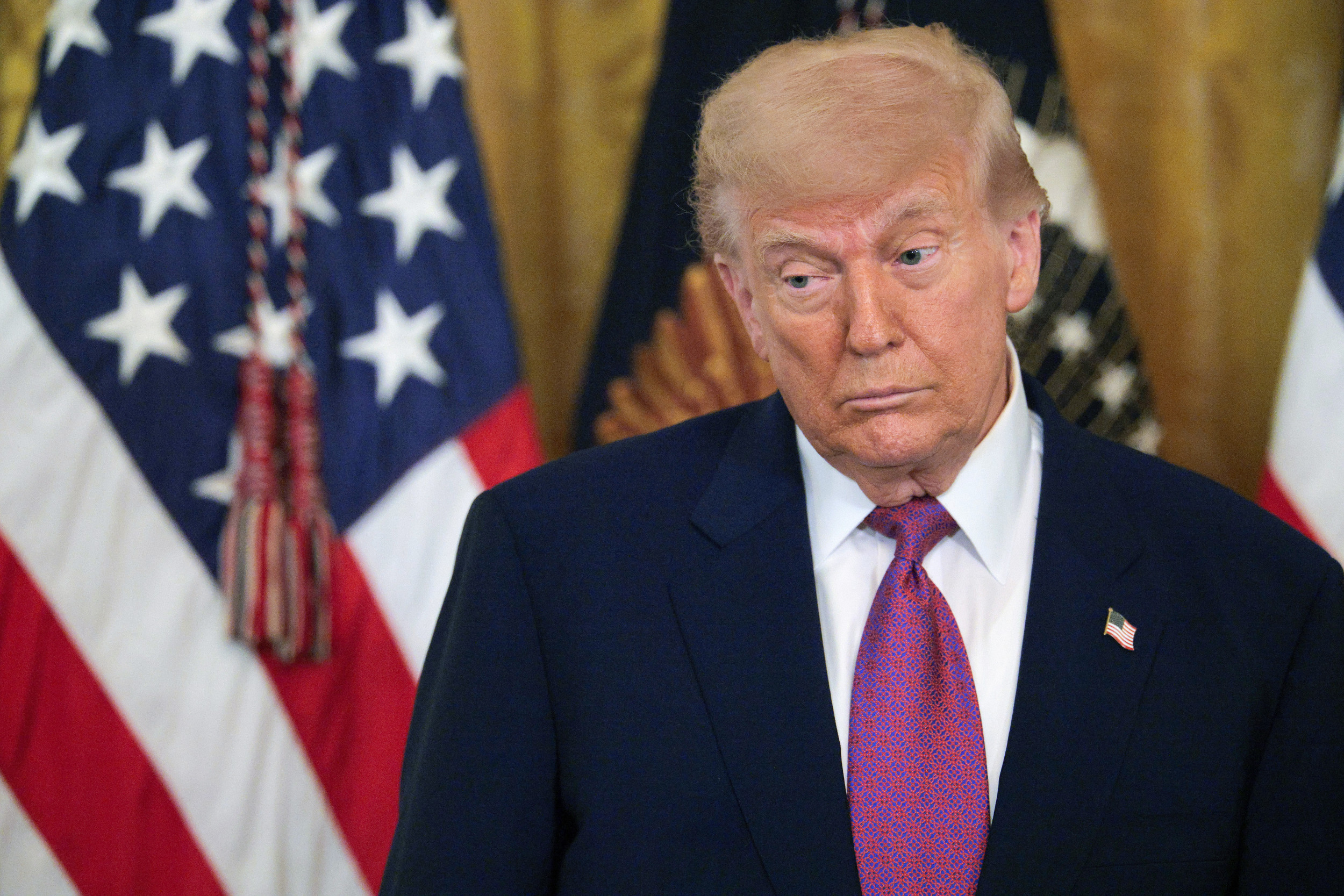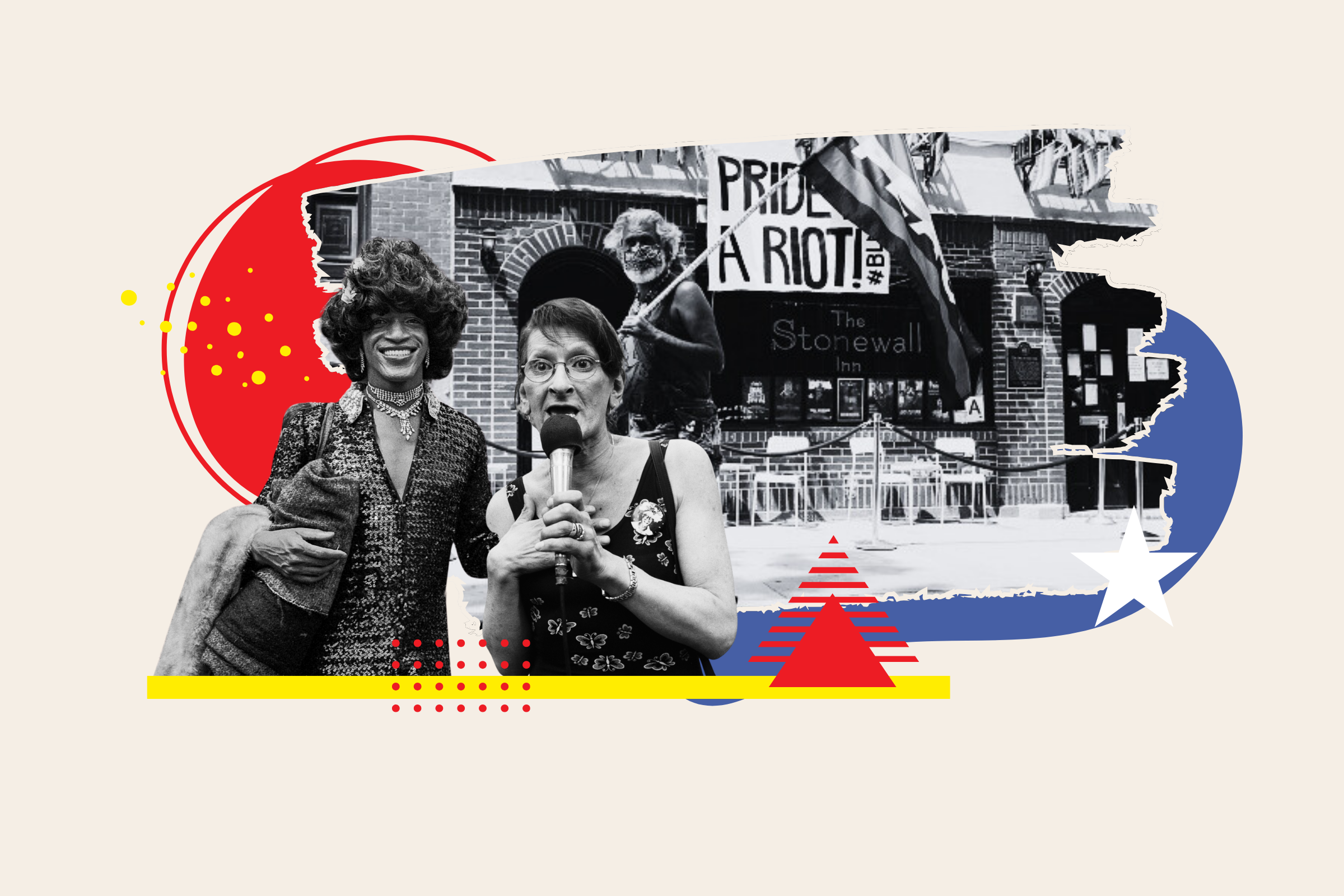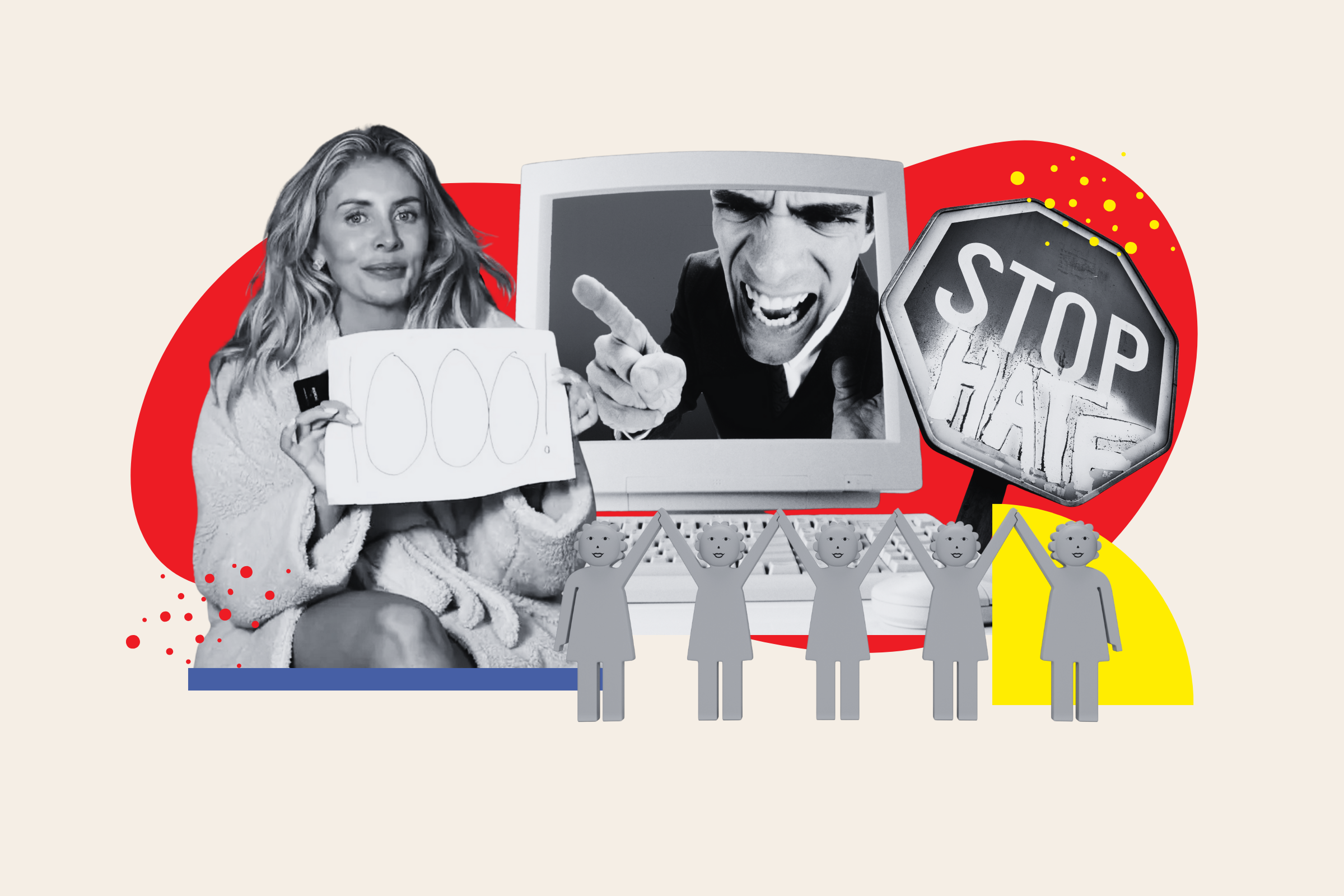🎙️ Voice is AI-generated. Inconsistencies may occur.
More Americans than not believe it is likely that the United States will see a civil war over the next decade, according to a recent poll.
Why It Matters
The U.S. has seen an uptick in political polarization, as well as growing political unrest in recent weeks, such as the assassination of Minnesota politician Melissa Hortman and protests over President Donald Trump's immigration policies in Los Angeles turning violent earlier in June.
California Governor Gavin Newsom, a Democrat, said Trump wants "civil war on the streets of America" during their dispute about how to quell the violence in L.A., though Trump has pushed back on that statement.
What To Know
Americans are split about whether there could be a civil war on the horizon, according to a new survey from YouGov.
Twelve percent said a civil war is very likely, and 28 percent said one is somewhat likely to occur. That 40 percent of respondents is notably a higher percentage than those who said a civil war is unlikely. Twenty-two percent said a civil war is not very likely, while 17 percent said a civil war is not likely at all.
An additional 18 percent said they are not sure if a civil war is likely, while 3 percent responded that they prefer not to share their view on the matter.

Democrats were more likely to view a civil war as likely than Republicans. Seventeen percent of Democrats said civil war is very likely, and 31 percent said it is somewhat likely. Among Republicans, 7 percent viewed a civil war as very likely and 25 percent as somewhat likely, according to YouGov.
The poll surveyed 3,375 U.S. adults on June 16, 2025.
This represents an uptick in civil war concerns compared to a December YouGov poll, in which 9 percent of respondents viewed a civil war over the next decade as very likely and 21 percent said a civil war was somewhat likely. That poll surveyed 1,582 adults from December 21 to 24, 2024.
Nina Silber, a professor of history at Boston University specializing in the U.S. Civil War, told Newsweek that the poll numbers are unsurprising to her. However, she said a civil war "as we envision it from the nineteenth century is probably not what we're looking at today."
A modern civil war may not appear as two separate governments emerging, each building a military force to fight the other, she said.
"To me, evidence of 'civil conflict' continues to increase, especially in terms of the increase in political violence," she said. "And while acts of violence occur on both sides of the political divide, I am particularly worried about political officials who have been stoking and encouraging political violence, who make it an almost accepted part of our culture."
What People Are Saying
President Donald Trump, in response to California Governor Gavin Newsom: "I don't want a civil war. Civil war would happen if you left it to people like him."
A Department of Homeland Security document reported by Politico last year warned of an uptick of extremists discussing a civil war: "Some domestic violent extremists (DVEs) are reacting to the 2024 election season and prominent policy issues by engaging in illegal preparatory or violent activity that they link to the narrative of an impending civil war, raising the risk of violence against government targets and ideological opponents."
What Happens Next
Despite growing concerns about a potential civil war, there are no real indications that any state or the federal government is preparing for a domestic armed conflict at this point.
Still, there are also few signs that political polarization will decrease in the coming months and years, even as leaders from both parties have called for the political temperature to drop after recent instances of violence.
fairness meter
About the writer
Andrew Stanton is a Newsweek weekend reporter based in Maine. His role is reporting on U.S. politics and social issues. ... Read more




